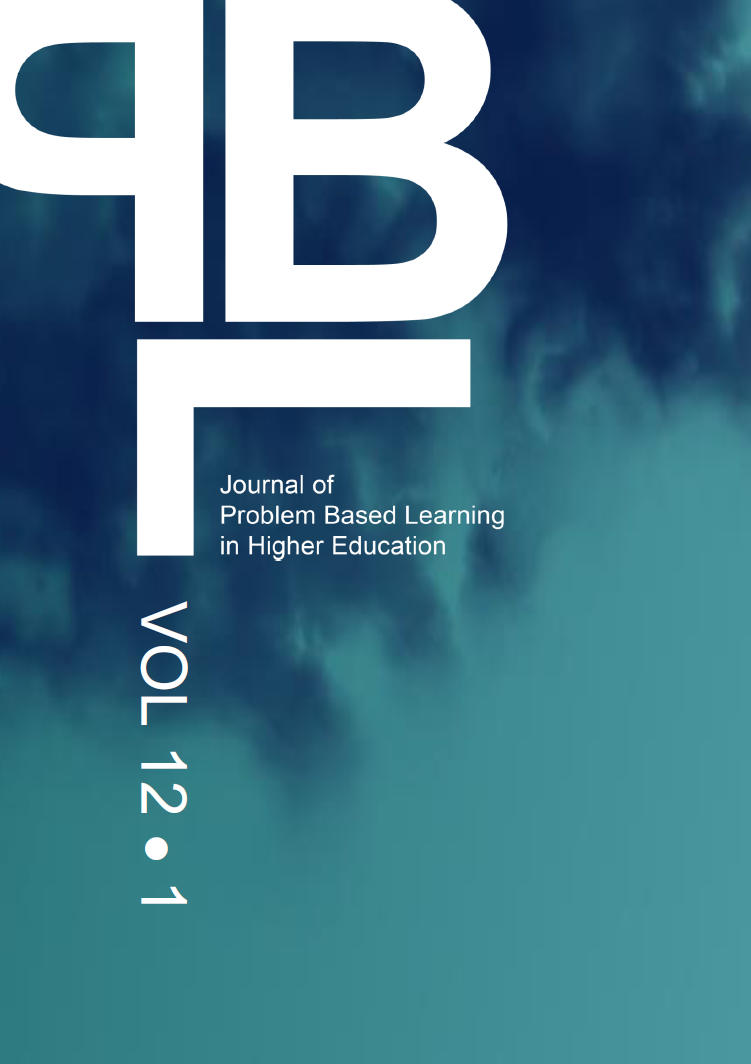Abstract
This paper explores how the concept of “the facilitator as a fool” can be used as a guiding principle for supervising students at universities adhering to problem-based learning pedagogies. With the example of students enrolled at spatial planning studies, the paper argues that students should learn how to face uncertainty and take matters into their own hands. For this purpose, the paper proposes that supervisors act as “fools” in their conversations with students, mimicking a reflective practice. The paper reflects on how this concept fares when applied to a real-life situation of supervising planning students at both Bachelor's and Master’s levels at Aalborg University in Denmark. In the end, the paper concludes that the applied concept can work to a certain degree, but it also requires a supervisor who is familiar with the theoretical and methodological “landscape” that students need to navigate in, and through, to become professional and reflective practitioners.
References
Askehave, I., Prehn, H. L., Pedersen, J., & Pedersen, M. T. (2015). PBL. Problem-Based Learning. Aalborg University. https://prod-aaudxp-cms-001-app.azurewebsites.net/media/mmmjbthi/pbl-aalborg-model_uk.pdf
Ellis, R. (1968). The Fool in Shakespeare: A Study in Alienation. The Critical Quarterly, 10(3), 245-268.
https://doi.org/10.1111/j.1467-8705.1968.tb01984.x
Feilberg, C. (2018). Skjulte kræfter og processer i vejledningsrummet - dannelsesperspektiver på projektarbejde og projektvejlederrollen ved universiteterne. Psyke & Logos, 38(2), 134-158. https://doi.org/10.7146/pl.v38i2.104013
Land, R., Rattray, J., & Vivian, P. (2014). Learning in the liminal space: a semiotic approach to threshold concepts. Higher Education, 67(2), 199-217. https://doi.org/10.1007/s10734-013-9705-x
Rittel, H. W. J., & Webber, M.M. (1973). Dilemmas in a General Theory of Planning. Policy Sciences, 4(2), 155-169. https://doi.org/10.1007/BF01405730
Savin-Baden, M. (2020a). What Are Problem-Based Pedagogies? Journal of Problem-Based Learning, 7(1), 3-10. https://doi.org/10.24313/jpbl.2020.00199
Savin-Baden, M. (2020b). Learning Ecologies - Liminal states and students transformation. In N. Jackson; R. Barnett (Eds.) Ecologies for Learning and Practice - Emerging Ideas, Sightings, and Possibilities (1st ed., pp. 46-60). Routledge. https://doi.org/10.4324/9781351020268-4
Schön, D. A. (1983). The reflective practitioner. Basic Books.
Stengers, I. (2005). The Cosmopolitical Proposal. In B. Latour & P. Webel (Eds.), Making Things Public, 994-1003. Cambridge, MA: MIT Press.
Wichmann-Hansen, G., & Jensen, T.W. (2015). Supervision: Process management and communication. In L. Rienecker, P.S. Jørgensen, J. Dolin, G.H. Ingerslev (Eds.), University Teaching and Learning. Samfundslitteratur.

This work is licensed under a Creative Commons Attribution 4.0 International License.
Copyright (c) 2024 Rasmus Nedergård Steffansen
